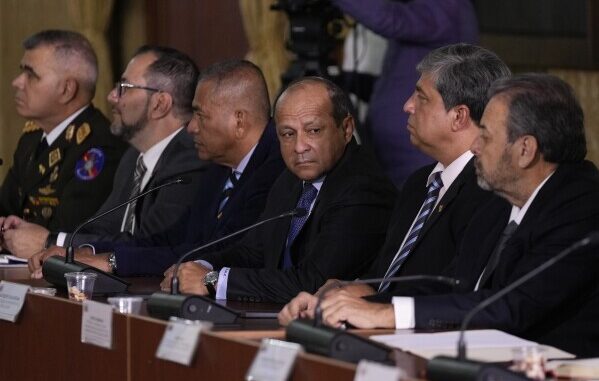
Guyana Firmly rules out rattle with Venezuela over disputed border region
Guyana leader rules out talks with Venezuela over disputed border…..On March 15, 2025, Guyanese President Irfaan Ali firmly declined Venezuelan President Nicolás Maduro’s proposal for direct talks concerning the disputed Essequibo region. President Ali emphasized that the International Court of Justice (ICJ) is the appropriate forum for resolving this longstanding territorial conflict, underscoring Guyana’s commitment to international legal processes.
Historical Context of the Dispute
The contention over the Essequibo region, encompassing approximately 160,000 square kilometers rich in natural resources, dates back to an 1899 arbitration award that delineated the boundary between Venezuela and then British Guiana. Venezuela has persistently disputed this award, claiming the region as its own. The discovery of significant oil reserves in the area has intensified the dispute in recent years.
Recent Escalations and Legal Proceedings
In December 2023, both nations signed the Argyle Agreement, committing to peaceful dialogue and adherence to international law to resolve the dispute. Despite this accord, tensions escalated when Venezuela announced plans to hold elections in the Essequibo region, a move Guyana contends violates both the Argyle Agreement and a binding ICJ order. In response, Guyana petitioned the ICJ on March 6, 2025, to prevent Venezuela from proceeding with these elections, asserting that such actions infringe upon Guyana’s sovereignty and contravene international agreements.
International Reactions and Military Tensions
The United States and the Organization of American States (OAS) have expressed support for Guyana’s sovereignty, condemning Venezuela’s actions as violations of international law that threaten regional stability. The OAS specifically criticized Venezuela’s aggressive maneuvers, urging an immediate cessation to avoid escalating tensions.
Military tensions have also risen, exemplified by an incident on March 1, 2025, when a Venezuelan coastguard vessel entered Guyanese waters near an offshore oil facility. President Ali condemned this breach of international maritime agreements and ordered a military response, including deploying air assets and coastguard units to safeguard Guyana’s territorial integrity.
Guyana’s Firm Stance on Legal Resolution
President Ali’s recent refusal to engage in direct talks with Venezuela reinforces Guyana’s position that the ICJ is the appropriate venue for resolving the border dispute. This stance aligns with the 1966 Geneva Agreement, which designates the ICJ as the forum for arbitration in such matters. Guyana maintains that adhering to international legal mechanisms is essential for a peaceful and just resolution, rejecting any actions that could undermine this process.
Outlook and Potential Implications
The ICJ’s forthcoming decisions will be pivotal in determining the future of the Essequibo region. A ruling in favor of Guyana could solidify its sovereignty over the area, potentially leading to increased foreign investment and development of its natural resources. Conversely, a decision favoring Venezuela could exacerbate regional tensions and impact geopolitical dynamics in South America. Both nations’ commitment to abiding by the ICJ’s ruling will be crucial in maintaining peace and stability in the region.
In summary, President Ali’s decision to reject direct negotiations with Venezuela underscores Guyana’s dedication to resolving the border dispute through established international legal frameworks. This approach reflects a commitment to the rule of law and the principles of peaceful coexistence, even amid escalating tensions and external pressures.
Excellent decision made by the President.We cannot play the ball in Maduro’s .For one his government is not recognized as legitimate as he himself as President is…by the majority of the International community.Secondly we have no direct talks with Maduro on the Essequibo issue for Him to claim that Guyana recognises that there exist a border problem between the two nations.We do not recognize that we have a border problem with Venezuela.Our position is that border issue was resolved by the 1899 arbitral award that delimited the border of the then British Guyana and now since 1966,the independent and sovereign State of The Co-operative Republic of Guyana.This is not a situation where Guyana questions it’s sovereignty of the Essequibo.It’s a question where we assert our sovereignty of the Essequibo based on the arbitral award of 1899 which settled the issue once and for all and based on that fact we do not have to sit at a table with anyone to question our sovereignty of the Essequibo or to admit that indeed we have a border issue to be settled with Venezuela.
p81te9